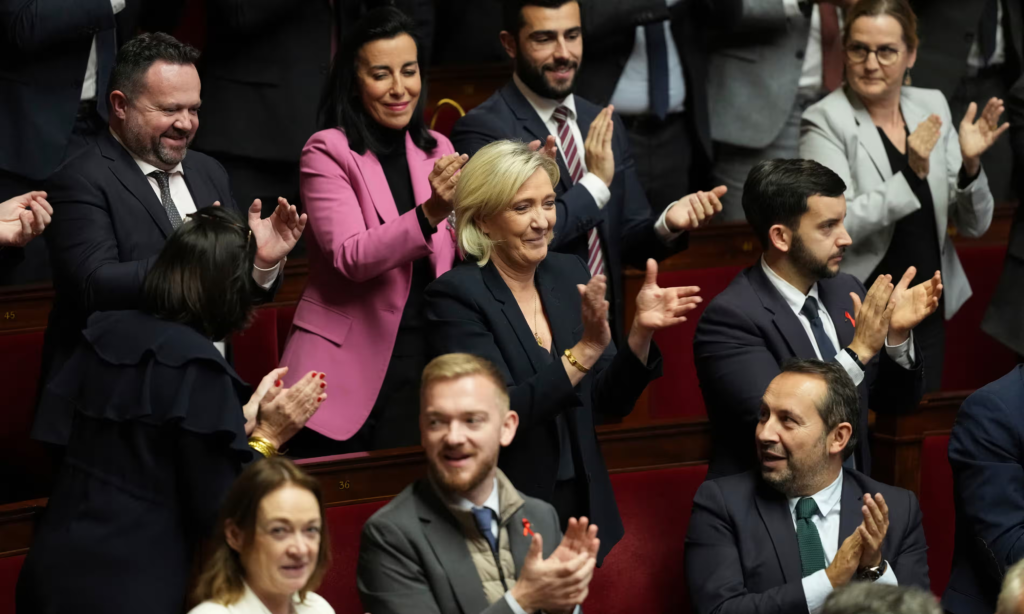French Prime Minister Michel Barnier is set to tender his resignation to President Emmanuel Macron on Thursday, following the government’s historic collapse via a no-confidence vote. This marks the first such ousting of a French government in over 60 years, just three months into Barnier’s tenure – the shortest in the history of the Fifth Republic.
Key Developments

1. No-Confidence Motion Passed
- Vote Outcome: A total of 331 MPs in the 577-member National Assembly voted to oust the government.
- Coalition Breakdown: The motion, initiated by the far-left France Unbowed (LFI) party, succeeded with crucial support from Marine Le Pen’s far-right National Rally (RN).
2. Political Standoff Over Budget
- The crisis stems from the prime minister’s decision to bypass parliament to pass next year’s social security financing bill, sparking outrage among opposition parties.
- Critics label the proposed austerity budget as harmful, with Le Pen calling it “toxic.”
3. Macron’s Dilemma
- President Macron faces mounting calls for his resignation, with opposition leaders urging early presidential elections.
- A fragmented parliament and no immediate legislative election options add to the complexity of appointing a new prime minister.
Implications
For Macron
- Macron’s authority is increasingly questioned, with opponents blaming him for the political instability.
- Calls for Macron to step down intensify, though he has rejected resignation demands.
For France
- Markets remain jittery, and unions have announced public-sector strikes over separate cost-cutting measures, disrupting schools, air traffic, and rail services.
- With Macron hosting the international reopening of Notre Dame Cathedral on Saturday, featuring Donald Trump as a guest, the juxtaposition of crisis and pageantry highlights the pressure on his administration.
Succession Challenges
Possible Prime Ministerial Candidates
- Sébastien Lecornu – Loyalist and current defense minister.
- François Bayrou – Macron’s centrist ally.
- Bernard Cazeneuve – Former Socialist PM and interior minister, seen as a stabilizing figure.
Political Risks
- The new appointee may face an even shorter tenure than Barnier’s, given the fractured parliament.
- Balancing a coalition between far-left and far-right influences will be a herculean task for any successor.
Historical Context
This is the first no-confidence vote to successfully topple a French government since 1962, when President Charles de Gaulle dismissed Georges Pompidou’s government.
Barnier is the fifth prime minister under Macron since 2017, reflecting a trend of increasingly shorter terms, signaling persistent political turbulence in France.
Outlook
President Macron must act swiftly to stabilize the government and address growing public discontent. With strikes, market instability, and international attention converging, his next steps could define the remainder of his term, which lasts until 2027.
The unfolding crisis underscores deep divisions within French politics, as both the far-left and far-right grow more influential in shaping the nation’s direction.









